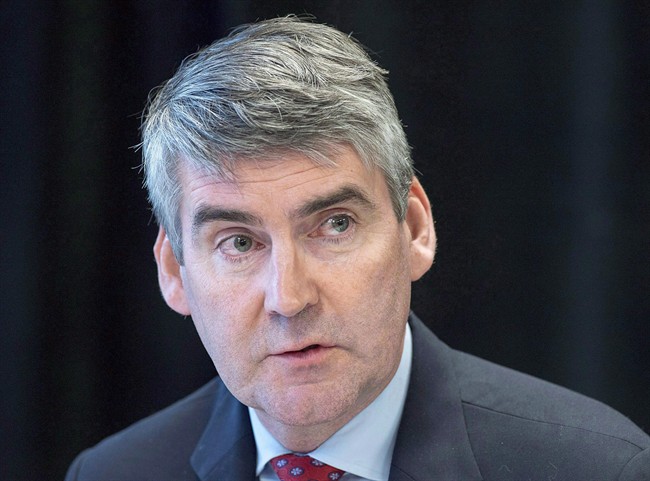Nova Scotia broke ranks and signed a separate 10-year, $287.8 million health deal after Ottawa made it clear a slightly revised offer was “as good as it was going to get,” says Premier Stephen McNeil.

READ MORE: Nova Scotia getting more health dollars in side deal with Ottawa: minister
McNeil commented for the first time Thursday after Nova Scotia and Newfoundland and Labrador followed New Brunswick’s lead and signed separate deals last Friday that signalled a regional split in provincial and territorial opposition to the federal funding proposal.
McNeil said with his province’s aging population, he simply couldn’t turn down much-needed funding for home care and mental health.
“The federal government was clear that there would be some adjustment but not to the extent that provinces were looking for,” said McNeil. “We have challenges in our health care system today and we need to be able to respond to them.”
On Dec. 19, the provinces and territories walked away from a federal offer of a 3.5 per cent annual increase in health transfer payments and another $11.5 billion over 10 years in targeted funding primarily for home care and mental health. Provinces wanted an annual increase of 5.2 per cent in annual funding.
Nova Scotia’s separate deal provides $157.0 million for home care over the next 10 years and $130.8 million for mental health.
READ MORE: Nova Scotia reaches own health care funding deal with Ottawa
Newfoundland and Labrador’s $160.7 million deal will see the province get $87.7 million for home care over the same period and $73.0 million for mental health.
Newfoundland and Labrador Health Minister John Haggie said Thursday the side deals followed a negotiating process where the provinces could only agree that they didn’t like the federal offer.
“None of them really could agree on much else in terms of detail,” said Haggie. “In actual fact there were opposing points of view … and there were different priorities and demographics in other jurisdictions.”
Haggie said his province got more money out of its deal than it would have under the take-it-or-leave-it scenario, but he said the jury is out on whether it’s enough because of rising health costs.
“It’s very difficult to control costs,” he said. “That’s our challenge as provinces, we actually have to step up and do that and I think we started down that road here.”
New Brunswick’s deal, which includes $230 million in additional funding over 10 years for health care and programs for seniors, was heavily criticized last week by Quebec’s health minister, who said Premier Brian Gallant had reduced the chances of a pan-Canadian deal by going out on his own.
READ MORE: Nova Scotia, New Brunswick split on Ottawa’s cash for health care offer
But McNeil said it was easier for the three provinces to sign on once they got assurances they would get a boost in funding if any other jurisdiction reaches an agreement with better financial terms – a scenario he believes isn’t likely.
“I don’t believe there is a deal out there; I think this will be the deal that will be offered, he said. “If provinces choose to stick with the old deal, then from our perspective Nova Scotia would have been worse off so we signed this deal.”
McNeil said his province would also see a 3.5 per cent funding increase over the first two years of the new deal, then funding would be based on GDP or a escalator base of three per cent. However, he said projections put GDP higher than the base rate in years three, four and five of the deal.
The four Atlantic provinces have consistently campaigned for changes to the current per-capita health formula to better reflect regional challenges posed by mainly rural populations and aging demographics. In a meeting last May, the Atlantic premiers made it clear the current formula doesn’t meet their needs.
READ MORE: Nova Scotia reaches own health care funding deal with Ottawa
McNeil said the new agreements reflect the current reality of what’s possible.
“I’ve also said I could not see a federal government now making the changes of removing millions of dollars out of other provinces. I’ve always said that any additional funding should reflect those demographic challenges and that’s what we’ve been able to achieve.”



Comments